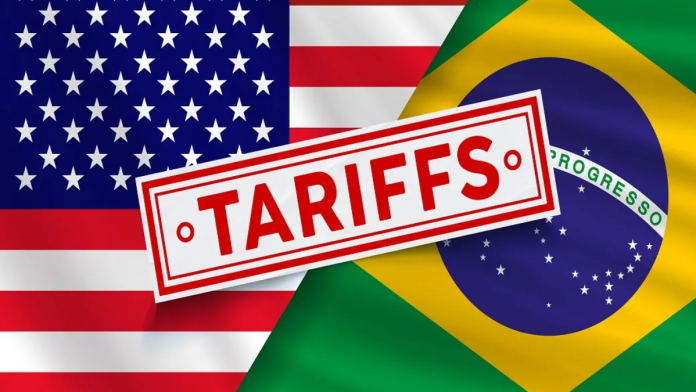Brazil has begun the process of preparing a strong response after U.S. President Donald Trump announced steep 50 percent tariffs on certain products. The decision came after President Luiz Inácio Lula da Silva authorised the start of official retaliation measures.
The move was confirmed by Vice President Geraldo Alckmin, who explained that the country will now take the matter to its Chamber of Foreign Trade. The Chamber of Foreign Trade, is a government body that studies international trade issues and decides how the country should respond with tariffs, restrictions, or other measures to protect its economy. This body has up to 30 days to analyse the U.S. measures and decide whether they go against the new reciprocity law passed earlier this year.
President Lula held a special meeting with cabinet ministers before approving this step. During the discussions, the focus was on finding ways to protect Brazil’s businesses and ensure that unfair trade practices do not hurt the nation’s economy. Officials described the retaliation process as an initial move that could push the two nations back into dialogue before things escalate into a deeper trade conflict.
Trump tariffs hailed as a debt-busting weapon that could slash US deficits by $4 trillion
Possible Countermeasures on the Table
Under Brazil’s new law, the government now has the legal power to respond directly to any country that harms its international competitiveness through unilateral decisions. This law was introduced to give Brazil more tools to defend its industries and workers.
If the Chamber of Foreign Trade confirms that the U.S. tariffs fall under the scope of the law, the next step will be handled by a group of ministries. These ministries will study and recommend which countermeasures Brazil should apply.
The potential retaliation could take different forms. It could mean placing new tariffs on U.S. goods and services coming into Brazil. It could also involve charging extra fees or setting restrictions on imports. Another possibility includes suspending trade and investment concessions that currently benefit the U.S. Companies relying on intellectual property rights, such as trademarks or patents, could also be affected if obligations in this area are suspended.
Officials have been careful to stress that no final decision on specific actions has been made yet. The current step only opens the door for analysis and creates a clear path for Brazil to defend itself under international trade rules.
🌍 Brazil warns U.S. is bypassing global trade rules with unilateral Section 301 investigation
Aim to Encourage Talks Before Trade War Escalates
While the retaliation process is a strong message, it is also meant to encourage negotiations. By formally notifying the U.S. government of the decision, Brazil signals that it is ready to stand firm but also open to dialogue. Vice President Geraldo Alckmin said that authorising retaliation may help speed up conversations.
According to people familiar with the discussions, the notification to the U.S. government is scheduled to be delivered soon. This step is considered crucial because it sets a timeline for both sides to act.
For now, Brazil’s Foreign Ministry has not made an official public statement. However, within the government, the focus remains on ensuring that any response is balanced, legal, and effective in protecting the country’s economic interests.
The current developments highlight how trade tensions can quickly grow between large economies. With tariffs and counter-tariffs in play, the process shows how countries use laws and trade bodies to defend themselves. Brazil’s decision to start the retaliation process, led by President Lula, marks a significant moment in its trade relationship with the U.S. under President Trump, especially as both nations weigh the costs of escalating measures.


